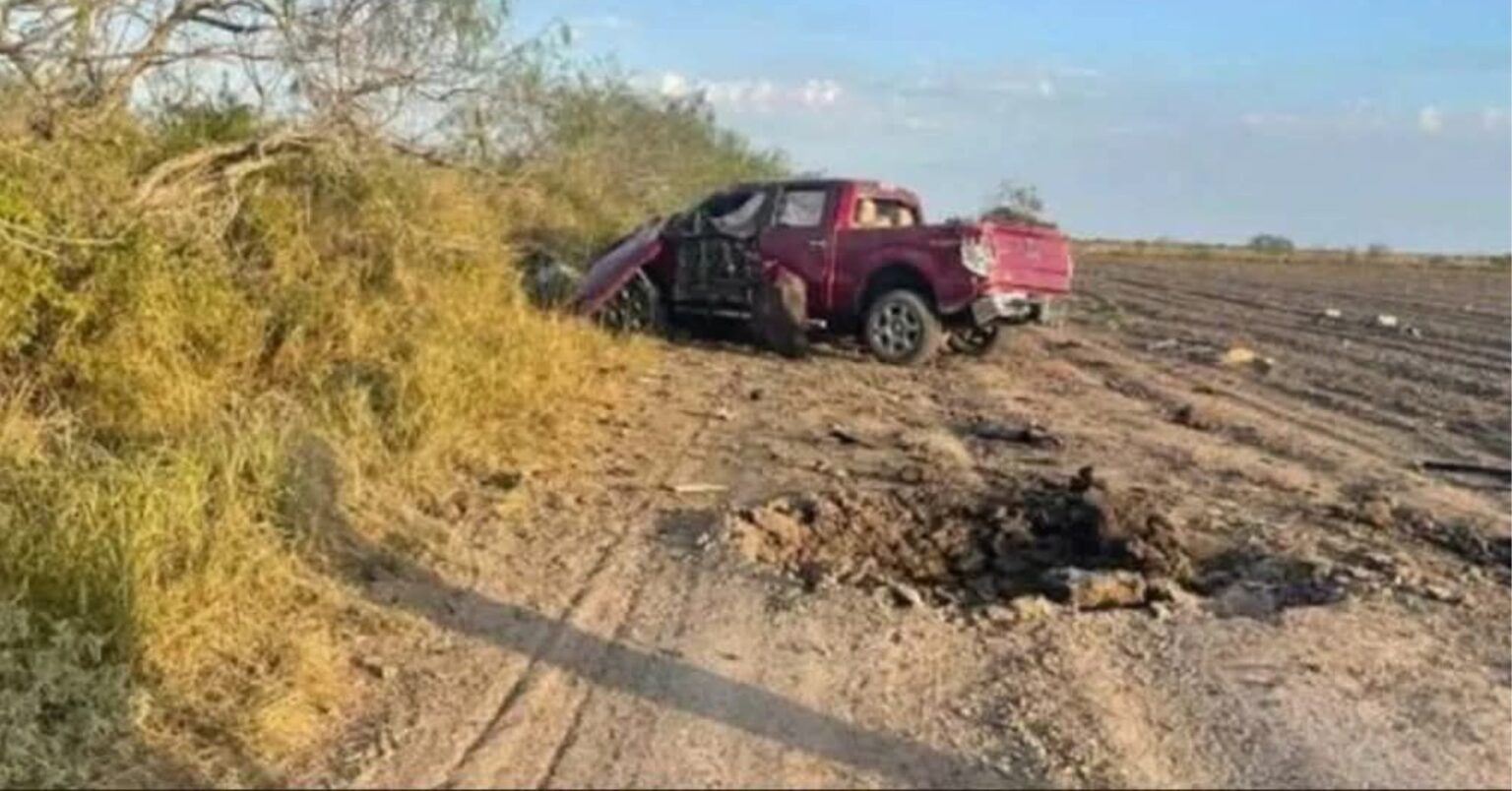A few days ago, a 74-year-old rancher ran over an improvised explosive device — which authorities suspect was planted by a drug cartel — in the Mexican state of Tamaulipas, killing him and a passenger and wounding another.
Antonio Céspedes Saldierna, who lived in the Texas border town of Brownsville, accidentally triggered the device while driving on his ranch in San Fernando, Tamaulipas. The blast also killed Horacio Lopez Peña, while Lopez’s wife, Ninfa Griselda Ortega, sustained injuries and has been hospitalized. A funeral for Céspedes was held Tuesday.
The Tamaulipas State Police said that IEDs are being deployed by organized crime groups as a means of controlling territory and deterring rivals.
Ramiro Céspedes, Antonio’s son and a U.S. Army veteran, voiced his grief and frustration during an interview with KRGV, labeling the attack an act of terrorism.
“I consider this a terrorist attack because if I went to war to fight terrorists, and I’m seeing the same thing here — to me, my personal opinion — it is a terrorist attack,” he told the TV station.
Just last month, an IED destroyed a pickup truck belonging to Mexico’s federal water agency near Rio Bravo, and officials reiterated the growing threat of explosive devices in the region.
This comes as concerns about cartel violence along the U.S.-Mexico border continue to escalate. Cartels have begun weaponizing drones to drop explosives on rival groups, a tactic captured in video footage obtained by NewsNation. One such attack reportedly took place about four hours south of the Rio Grande Valley in Mexico.
Border agents have expressed growing alarm over these developments as cartel operations — estimated to generate $13 billion annually through human smuggling and other criminal enterprises — continue to evolve in increasingly dangerous ways.
In response to the rising violence, the U.S. Consulate in Mexico has issued a level four travel advisory for Tamaulipas, warning of gun violence and IEDs. Authorities urge travelers in the region to take precautions, such as avoiding dirt roads, refraining from touching unknown objects, and limiting travel to daylight hours. Additionally, U.S. government employees have been instructed to avoid travel in and around Reynosa and Rio Bravo due to heightened risks of violence and kidnapping.
As border security remains a pressing concern, officials are closely monitoring the situation, warning of the increasing dangers posed by explosive devices and cartel activity.
»Related: Trump’s tariff plans targeting China could raise trade tensions



